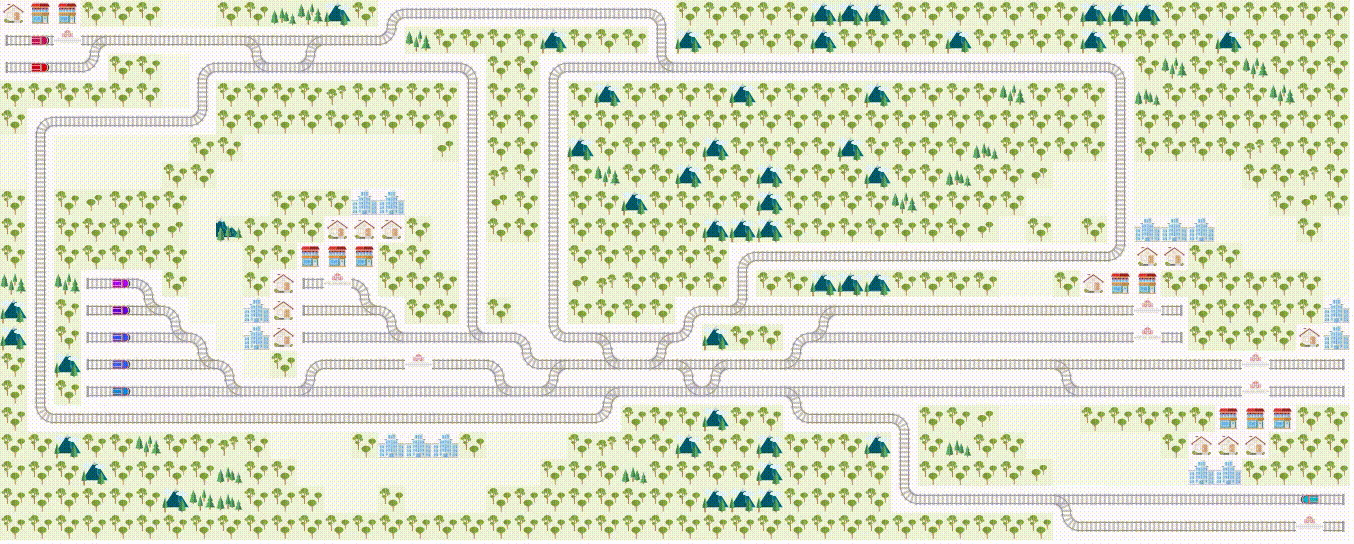The Flatland Challenge is a competition to foster progress in multi-agent reinforcement learning for any re-scheduling problem (RSP). The challenge addresses a real-world problem faced by many transportation and logistics companies around the world (such as the Swiss Federal Railways, SBB. Different tasks related to RSP on a simplified 2D multi-agent railway simulation must be solved. Your contribution may shape the way modern traffic management systems (TMS) are implemented not only in railway but also in other areas of transportation and logistics. This will be the first of a series of challenges related to re-scheduling and complex transportation systems.
https://www.aicrowd.com/challenges/flatland-challenge
This project was tested only with the following python versions:
$ Python 3.7.10
$ Python 3.8.5
for installing the dependencies:
$ pip install -r requirements_cpu.txt
in case you have some errors during the rendering function, please run:
$ pip install -U pyglet==1.5.11
for more information about this problem look here.
The base structure of the json configurations file can be found inside this file.
Look at the examples folder for more advanced configurations.
$ python src/run.py -h
usage: Flatland-DMM [options]
Executable for training/testing the behaviour of an arbitrary number of trains inside the Flatland rail environment.
optional arguments:
-h, --help show this help message and exit
--config CONFIG path of the json file with the running configurations.
for running the program with the default configurations:
$ python src/run.py
for running the program with one the pre-built examples:
$ python src/run.py --config "./examples/agents/ddqn.json"
if you want to run the program with your custom configurations:
$ python src/run.py --config "<your_file_path>.json"
You can find the full report of the project here.
You can find the summary slides here.
See also the list of contributors who participated in this project.
